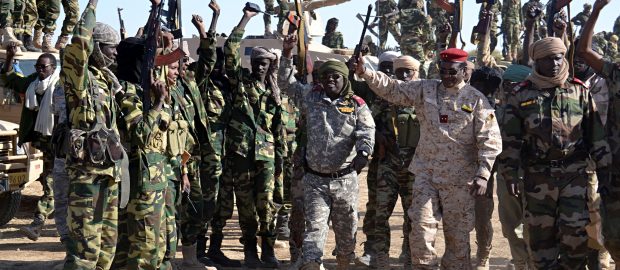France, Sweden and Uruguay Rally Around Nigeria To End Boko Haram Problems
Sweden, France and Uruguay offer solutions to the activities of the Boko Haram terrorists, which have ravaged parts of Northeast Nigeria, Chad, Cameroon and Niger.
The three countries, which are members of the UN Security Council, at a news briefing on their recent trip to the Lake Chad Basin region, said on Thursday that there was more to the insurgency.
“The roots of the conflict run deeper than the Boko Haram insurgency.
They include abject poverty, climate change, and underdevelopment.
“Indeed, the situation in the Lake Chad Basin region vividly demonstrates the links between security, development and human rights ,” the Ambassador of Sweden on the Security Council, Olof Skoog, said.
Skoog explained that more is needed to avoid a humanitarian disaster of historic proportions in the area.
According to him, to begin with, there must be rapid disbursement of the pledges made in Oslo.
I am happy to report that Sweden has already done so, and call upon others to follow.
“Secondly, every effort must be made to ensure this assistance is able to reach even the most remote and hard to reach areas.
“It is clear that the regional nature of the Boko Haram threat requires a regional response.
“Countries of the region are working together, including through the Multinational Joint Task Force, which is making progress and deserves further international support.
“We urge the rapid deployment of the African Union civilian component. We need to ensure that the response does not increase the suffering of an already brutalized population.
“In this regard, we welcome the commitment expressed by all governments in the region to the protection of civilians and human rights, in line with the 2016 Abuja Action Statement.
“We encourage governments to develop enhanced prosecution, rehabilitation and reintegration approaches to deal with persons associated with Boko Haram and to increase coordination in this regard,” Skoog said.
” On Wednesday, we celebrated international women’s day; the women we met in Maroua and Maiduguri, despite the challenges they face on a daily basis, are survivors and leaders not victims, he said.
He said faced with the visiting Security Council, they clearly told us their stories – so we would know their realities – and set out their needs – so we would know how to respond.
“We must not let them down. It is clear that women play a vital role in prevention, peace-building and de-radicalization efforts.
“Improving education, in particular for girls, and ending early-age marriage are central components to development in the region.
We were encouraged by the development of National Actions Plans on Women, Peace and Security.
“Words must now be translated into actions through the allocation of adequate resources and meaningful implementation.
“Now that we have seen the tragedy that is unfolding in the Lake Chad Basin, we must ensure that we actively follow-up on our engagement and on the findings of this trip.
He called on the Council to agree a Presidential Statement that sets out a roadmap for the future that, among other actions, encourages leadership from the Secretary-General, including by visiting the region and reporting back to the Council.
He also suggested developing a comprehensive regional strategy to address the drivers of the conflict, in line with existing plans and supported by development partners and international financial institutions.
Skoog advocated efforts to strengthen the links between humanitarian assistance and longer-term development measures, focusing on early recovery and the provision of alternative livelihoods, not least in local host communities.
“We were encouraged to see that coordination within the humanitarian community in Nigeria has improved significantly in recent months, not least demonstrated by the scale up of the humanitarian response.”
France’s Ambassador in the Security Council, Francois Delattre and his Uruguayan counterpart, Elbio Rosselli, who were on the trip to the region, regretted the humanitarian disaster created by Boko Haram.
They said that children must be treated as children, and hand over protocols that prioritize child protection should be adopted, in dealing with arrested child soldiers recruited by Boko Haram.
According to the Council members, President Mahamadou Issoufou of Niger cited the shrinking of Lake Chad, as a direct and major reason for the rise of Boko Haram.
They pointed out that the crisis is exactly the type of situation that the 2030 Agenda for Sustainable Development and the Sustaining Peace agenda were created to respond to.
According to them, working within the framework of the 2030 Agenda, must see a coordinated and better linked humanitarian, reconstruction and development response.
The Security Council members pledged to work with Deputy Secretary-General Amina Mohammed as she leads the reform of the UN Development System to better respond to such crises.

